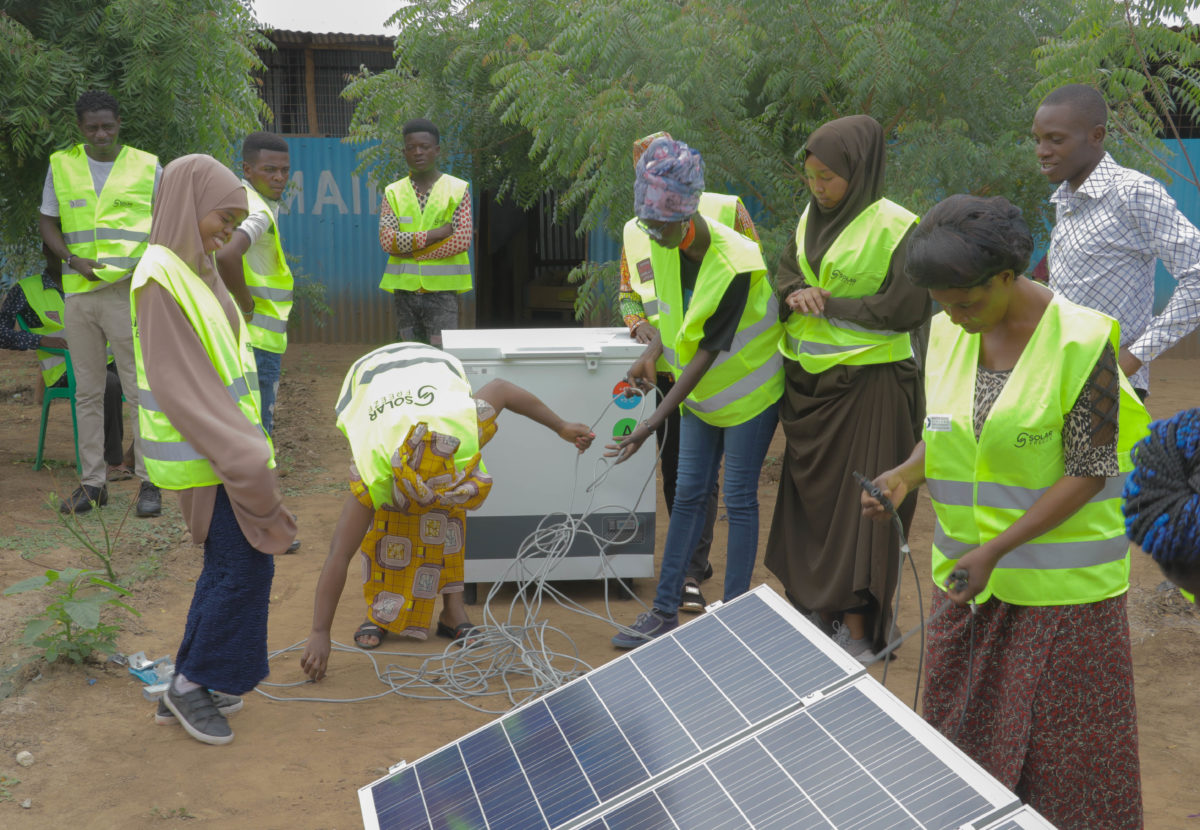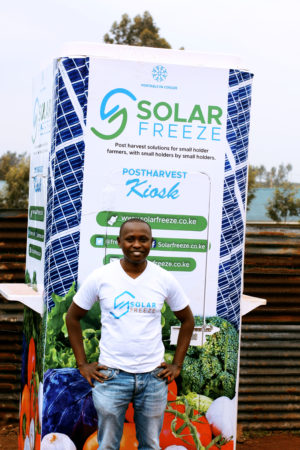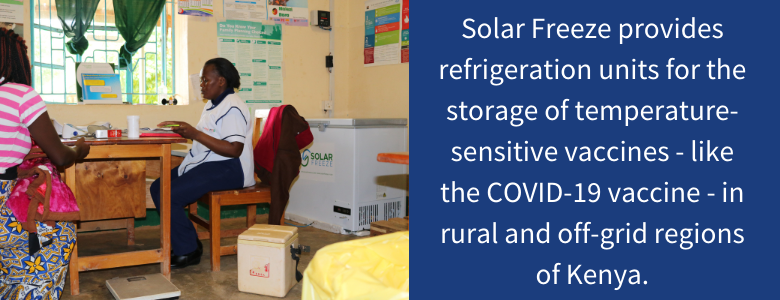Supporting Farmers Through Renewable Energy

The theme of Earth Day 2021 is “Restore Our Earth,” highlighting emerging green technologies and innovative thinking that can restore the world’s ecosystems.
One member of the Fellowship Network embodying this theme in his work is Dysmus Kisilu, 2016 Fellowship Alumnus from Kenya. Dysmus founded Solar Freeze, an agricultural cooperative that creates mobile solar-powered cold storage units to help rural smallholder farmers reduce post-harvest loss.
According to the World Food Programme, one third of all food produced for human consumption – 1.3 billion tons — is lost or wasted. In some countries, smallholder farmers regularly lose 40 percent of their harvest due to inadequate storage. Temperature management is key to reduce losses, but very few smallholder farmers have access to cooling or cool storage facilities or refrigerated transportation.
Solar Freeze integrates solar-powered cold storage solutions, mentorship, training, and a mobile app to help smallholder farmers reduce post-harvest loss and increase their income. Through his work, Dysmus is impacting the lives of smallholder farmers in rural communities while contributing to the reduction of global warming through affordable and accessible renewable energy.
Applying renewable energy lessons from the United States to Kenya

During his Fellowship, Dysmus studied in the Fellowship’s specialized Energy Institute at the University of California, Davis, in Davis, California. Since his Fellowship, Dysmus has applied lessons that he learned from his time at UC Davis to his work on Solar Freeze.
“UC Davis was an absolutely phenomenal experience. I learned about renewable energy and how such lessons can be replicated in the work that Solar Freeze is doing,” he says. “The institution had a great resource to amazing professors, students as well as practical field work that was relevant to the work that I am currently doing.”
Dysmus is still in touch with students, faculty, and technicians at UC Davis, his Institute having spurred lifelong professional and personal relationships. Every two months, he convenes over Zoom with colleagues from UC Davis and Fellowship Alumni from his 2016 cohort to talk about renewable energy and how solutions in the United States can be applied to Kenya.
Additionally, Dysmus has hosted UC Davis colleagues in Kenya and returned to the United States to connect with contacts he established during his Fellowship. He says, “The contacts from America have remained one of the greatest things and experiences in my life so far.”
Increasing access to renewable energy for thousands of rural communities
In 2018, Dysmus won the Gates Foundation Goalkeepers Progress Award for Solar Freeze’s innovative approach to revolutionizing food storage and supporting rural farmers. Since then, Solar Freeze has expanded to healthcare, primarily providing refrigeration units for the storage of temperature-sensitive vaccines and medicines in rural areas, refugee camps, and off-grid regions of Kenya.
Solar Freeze’s solution for cold storage in the agricultural sector has increased by 150%, enabling Solar Freeze to serve a clientele of majority women (75%) small-scale farmers and to increase their incomes by 120% over the last year, making a huge difference in these rural communities.

The Solar Freeze project has also participated in mentoring program, training 100 youth in renewable energy. Through a program called “Each One, Teach One – Train to Earn,” rural youth gain practical technical skills and are taught to operate agriculture equipment powered by renewable energy.
Dysmus says, “The Mandela Washington Fellowship has impacted the work that Solar Freeze is doing in two major ways.” First, he says, access to a network of Fellows and Fellowship Alumni has been an invaluable resource to gain relevant contacts in the business, government and NGO sectors. Secondly, he says the Fellowship has provided access to opportunities including funding opportunities, speaking engagements, conferences, and more.
Today, Solar Freeze helps more than 3,000 rural communities with access to solar-powered assets such as cold storage units and has reduced food loss and waste in the fresh produce agricultural sector by 90%. Looking ahead, Dysmus aims to expand Solar Freeze’s beneficiaries’ and increase the impact of the company’s youth training to reach 500 rural youth by 2023.
Written by Abbie Wade.
Next Story
Marie-Josée Houenou
2018 Fellowship Alumna, Cote d’Ivoire